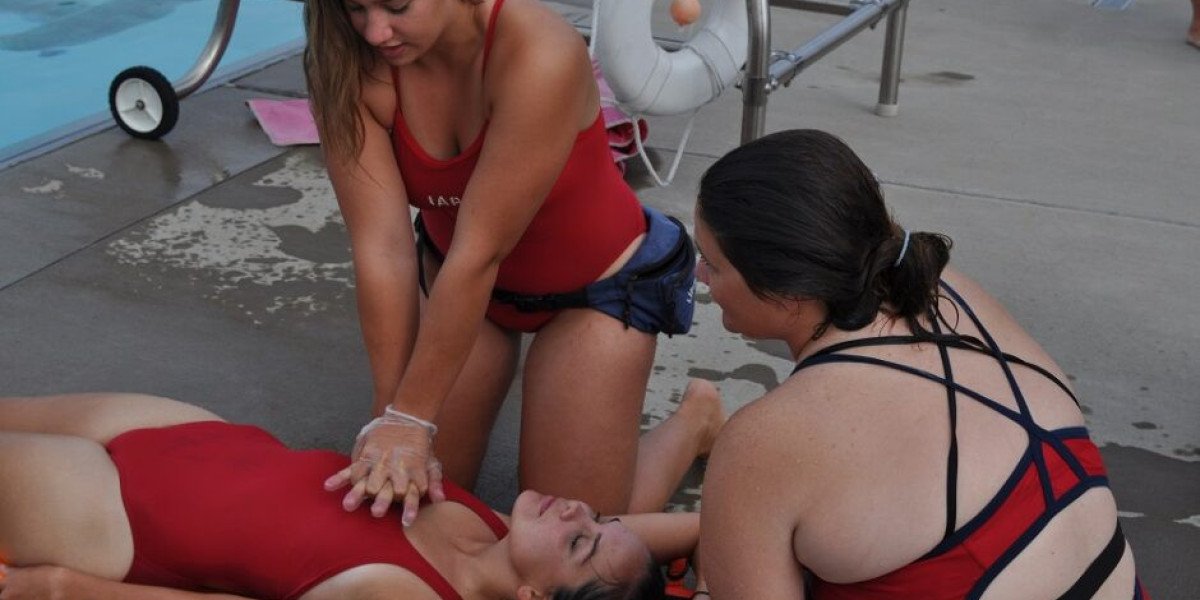In 2025, lifeguard certification isn’t just about swimming fast or having a whistle—it’s a full-spectrum training that blends emergency medical response, environmental awareness, and legal accountability. This evolution reflects the growing responsibilities lifeguards face in dynamic aquatic environments, from community pools to unpredictable coastlines. Below is a breakdown of current certification trends, national standards, and training upgrades every aspiring or seasoned lifeguard should know.
1. CPR and First Aid Training: The Lifeline of Lifeguarding
Why It Matters:
Modern lifeguard certification programs start with CPR (Cardiopulmonary Resuscitation) and first aid—not as an add-on, but as a core competency. National data consistently shows that fast and accurate CPR can mean the difference between life and death in water rescue scenarios.
What’s New in 2025:
Emphasis on automated external defibrillator (AED) integration.
Introduction of child and infant CPR protocols as standard for all lifeguards.
Blended learning options combining online modules with live practice drills.
Takeaway:
CPR training is no longer basic—it’s medical-grade, scenario-driven, and continuously updated to align with national emergency care guidelines.
2. Coastal Readiness: From Pool Decks to Open Water
Why It Matters:
With lifeguards serving on lakes, rivers, and oceans, the traditional “pool-only” mindset is outdated. Certification must now address the variables of open-water environments.
Key Updates in 2025:
Tide and current recognition added to standard curriculum.
Jet ski and boat rescue protocols included in advanced coastal modules.
Training now includes hazard communication, marine life awareness, and coastline navigation basics.
Takeaway:
Lifeguards today must be cross-trained for both flat-water and high-risk coastal conditions, with certification that reflects the increased complexity.
3. National Lifeguard Standards: More Than Just a Piece of Paper
Why It Matters:
Certification needs to meet national safety and legal benchmarks. Regulatory bodies and employers are raising the bar on who qualifies as “certified.”
Core National Standards Include:
Minimum 20 hours of in-person training (not including online study).
Annual recertification requirements to keep skills fresh.
Compliance with Occupational Safety and Health Administration (OSHA) water safety practices.
What’s Changing:
National agencies are tightening instructor-to-student ratios.
Real-time skill assessments using wearable tech are being introduced.
Auditing of certification providers is increasing to ensure quality control.
Takeaway:
If your certification doesn’t align with current national standards, it may not be accepted by employers or insurance carriers.
4. Scenario-Based Rescue Simulations: Training That Reflects Reality
Why It Matters:
Reading a manual can’t prepare you for a panicked swimmer in crashing waves or a child who stops breathing mid-play. That’s why real-world simulation is becoming a centerpiece of training.
New Elements in Certification Courses:
Mock rescues in different settings (pools, beaches, lakes).
Multi-victim scenarios and bystander management drills.
Integration of de-escalation tactics when lifeguards encounter aggressive or non-compliant individuals.
Takeaway:
Rescue simulations build the critical-thinking muscle and emotional regulation needed in real emergencies. Certification programs now mirror real-life chaos—not textbook calm.
5. Mental Health and Crisis Response: The Unsung Skills
Why It Matters:
Lifeguards are increasingly called to respond not only to physical emergencies but also mental health crises—from distressed swimmers to suicide attempts.
Incorporated Into Certification:
Mental health first aid basics.
De-escalation and communication skills for sensitive situations.
Protocols for working with EMS during mental health emergencies.
Takeaway:
Lifeguards are frontline responders. Certification is being upgraded to reflect this broader human care responsibility, not just water safety.
6. Technology in Lifeguard Certification: The Digital Leap
Why It Matters:
Technology is reshaping lifeguard training delivery and assessment, improving access, consistency, and speed of instruction.
Innovations in 2025:
Virtual reality (VR) rescue simulations.
Mobile apps for tracking training hours and cert expiry dates.
Online knowledge assessments with immediate feedback.
Takeaway:
Digital tools are being embedded into certification to make training smarter, faster, and more measurable.
7. Legal and Ethical Training: Accountability in Action
Why It Matters:
Lifeguards can be held legally liable if they act negligently or outside their scope of training. Certification now emphasizes this accountability.
Key Inclusions in Certification:
Understanding of Good Samaritan laws.
Coverage of duty to act and abandonment principles.
Training on reporting incidents and writing legal documentation.
Takeaway:
Being certified now means being prepared not just to act, but to act responsibly within legal frameworks.
8. Recertification and Continuous Learning: Staying Sharp, Staying Valid
Why It Matters:
Lifeguarding isn’t a "one-and-done" skill. Like all emergency responders, lifeguards must renew their certifications and refresh their techniques regularly.
Recertification Trends in 2025:
Every 1–2 years depending on skill set and location.
Ongoing skills refreshers and CPR drills training required.
Digital badges or QR-code certs being used for on-the-spot verification by employers.
Takeaway:
If your certification isn’t current, your lifeguard status isn’t valid. Keeping it fresh is part of professional responsibility.
Final Thoughts: Lifeguarding in 2025 Requires More Than a Strong Stroke
Lifeguard certification has entered a new era—one that’s broader, deeper, and more technologically advanced than ever before. Whether you're a newcomer or a seasoned lifeguard, staying informed about national standards and training innovations is not optional. It’s critical.








